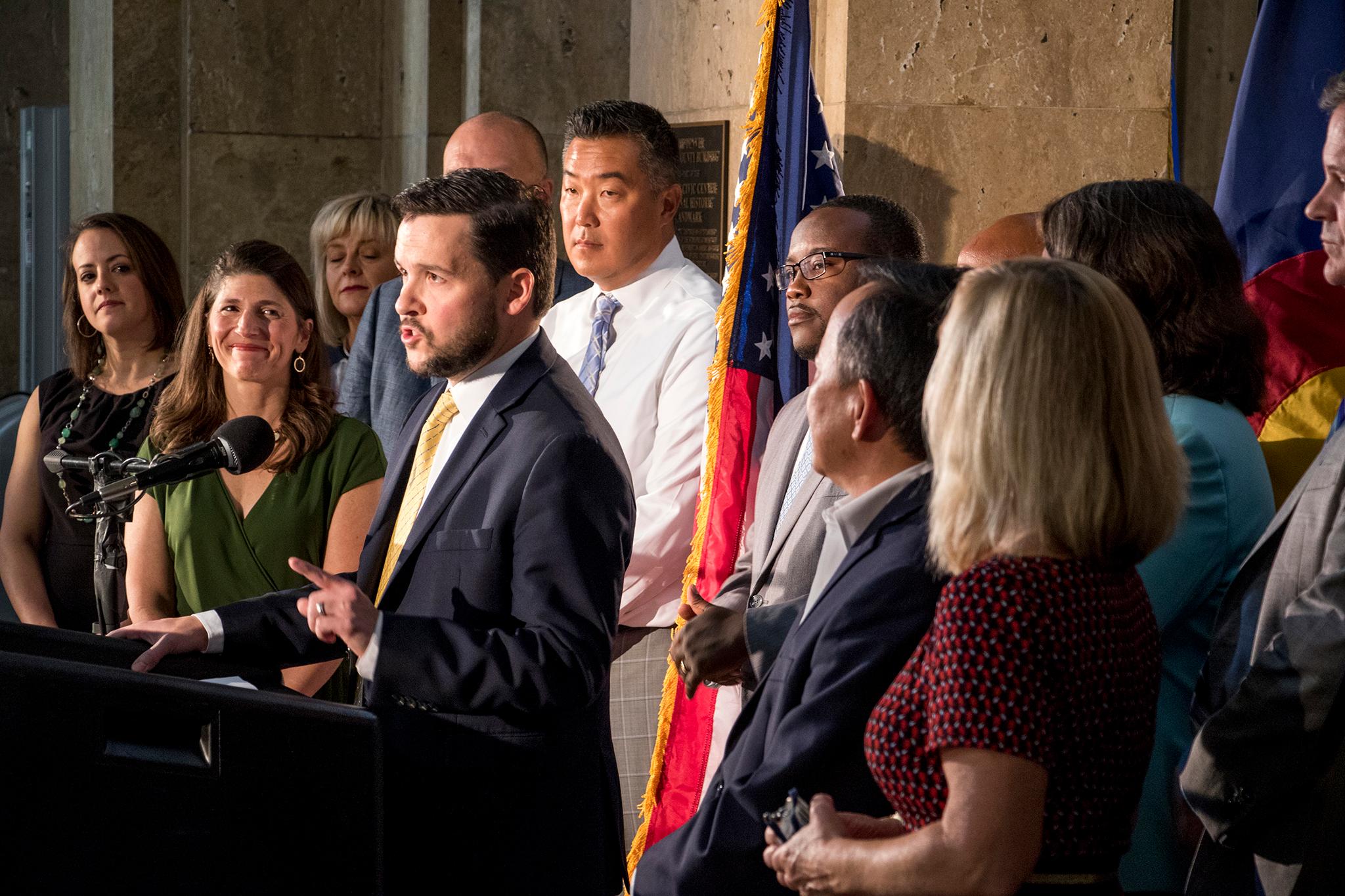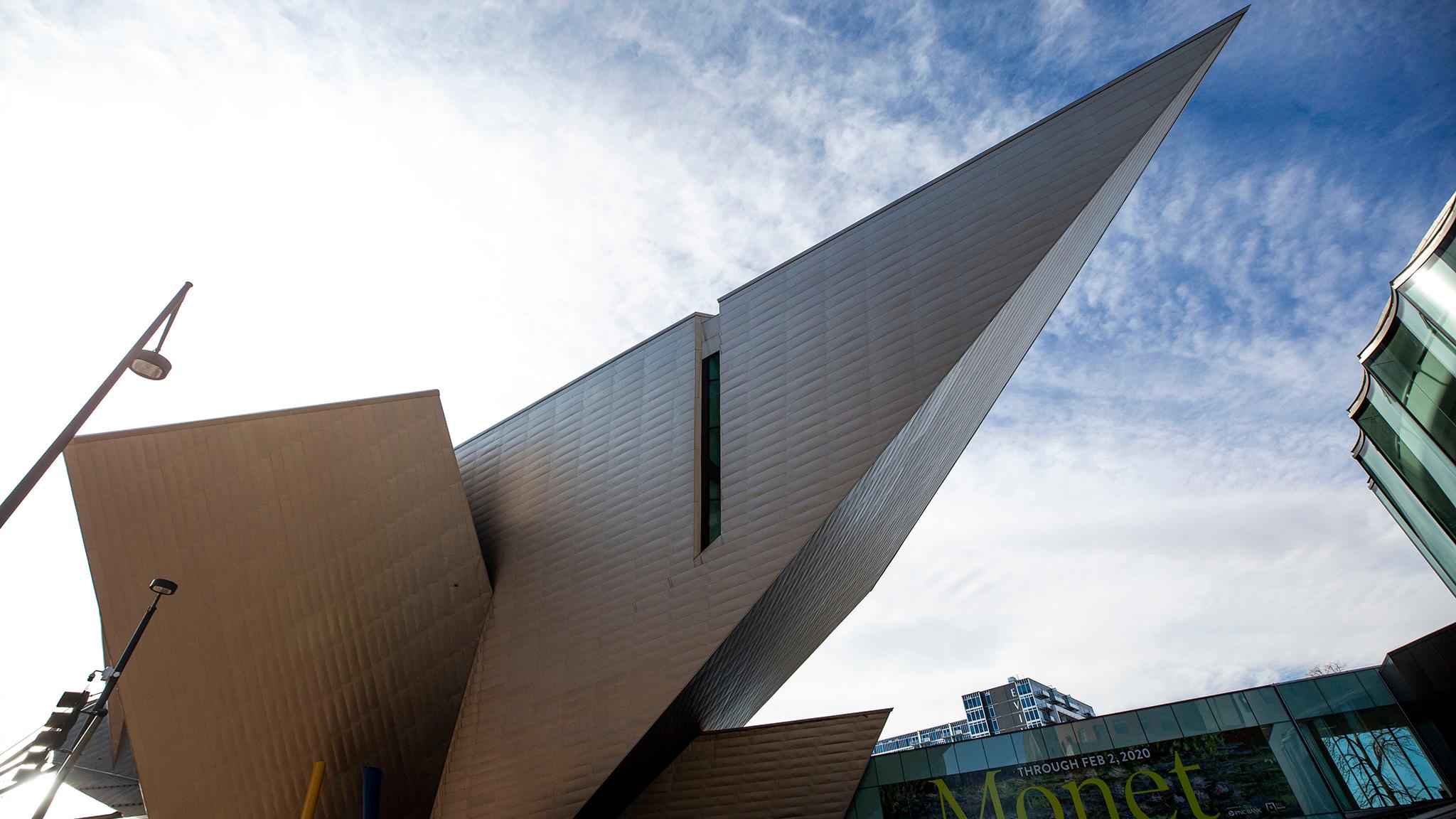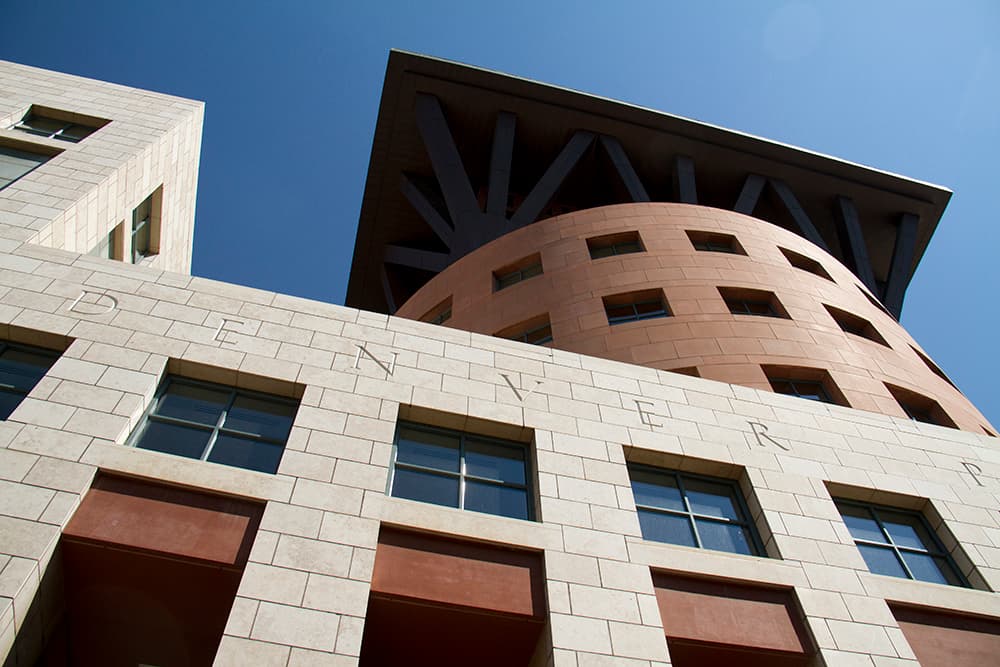It happens every few years. You, dear voter, get to decide whether to let the city borrow millions and millions of dollars to pay for stuff like roads, buildings, parks, and other stuff you will end up using during the course of any given day. It helps build and maintain things, too.
If city leaders get their way and Denver City Council votes in their favor, you will end up deciding this fall whether to let the city borrow about $400 million to pay for several projects. This money will be borrowed through what's called a general obligation bond, one of two types of municipal bonds used by cities and towns to pay for stuff (the other is called a municipal revenue bond).
Alex Fayman, assistant professor of finance at the Metropolitan State University of Denver, said general obligation bonds do not come with a tax increase.
Since 1982, Denver voters have approved all but one of the 11 bond packages sent to them. These bond packages have ranged from $25 million in 2002 (to help remodel the Quigg Newton Denver Municipal Auditorium) to a $937 million package voters passed in 2017 to pay for multiple projects.
The new money sought by Mayor Michael Hancock's administration was presented last month as a way to help the city's economy recover from the pandemic.
Brendan Hanlon, the city's Chief Financial Officer, describes it almost as a domino effect: Providing money for projects will, in turn, create jobs, causing more people to spend more money. That, theoretically, will help Denver recover from the pandemic.
"That's why we're pursuing this," Hanlon said.
This entire program is proposed as the city expects to get $308 million federal money to help with recovery (it's supposed to get the money in two installments). Hanlon noted he's gotten questions about why the city is borrowing money when it expects to get so much from the feds. That federal money won't necessarily be used for things a bond program will pay for; he said the federal money will go to things like business recovery and rental assistance programs. He joked that the money comes with a "150-page instruction manual" on how it can be used.
"What we're hoping to do is kind of continue some lessons learned from prior years, in prior recessions, frankly, where we have infused our construction market with additional dollars," Hanlon said. "That has helped us to preserve and create additional jobs during a time where the construction industry has been impacted."

In 2007, for example, voters passed a $549.7 million bond package, months before the beginning of the Great Recession. The timing is much different this time around, but Hanlon said the concept is similar, since the whole point of that program and all bonds are to provide money that can be used for city projects.
Emily Swenson Brock, a lobbyist for the Government Finance Officers Association, said it's a good time for this kind of debt to be issued. Debts from municipal bonds like the ones Denver will try to get voters to approve this fall are considered low-risk, so they can be very appealing to investors -- the people who will buy the bonds and in turn provide the money to pay for those projects, essentially "lending" the money to the city.
"It sounds to me like it's a really smart process, a really proactive process," Brock, whose organization represents public finance professionals across the country, said about Denver's proposal.
So what will this pay for?
The city has a shortlist of roughly 200 projects based on feedback it got from the public as part of the city's six-year capital improvement plan. They include things like paying for citywide bike infrastructure, sidewalk construction, and pedestrian crossings.
Other partners like local cultural institutions can request money. Hanlon expects to get some requests. For example, the $937 million bond package approved in 2017 has paid for things like renovations at the Denver Art Museum, Denver Botanic Gardens, the Denver Museum of Nature and Science, and the Denver Zoo. Paco Sanchez Park and the 47th and York Bicycle and Pedestrian Bridge in Elyria Swansea are other examples of city projects paid for by this bond package.

The city plans on giving people the chance to provide feedback on how they would like the money to be used. Details about what this process will look like haven't been announced yet.
Are you sure this won't raise my taxes?
It won't. However, Fayman pointed out it is possible for the city to raise taxes at some in the future to help pay for the debt. Hanlon confirmed this, though he pointed out the city structures bond programs to make sure the money it's borrowing for can be paid back with the existing property tax mill. Now, that tax mill can be raised, or even lowered.
By voting yes, you are essentially giving the city the OK to invest its money.
"If you trust that the city will make investments in key areas, which are going to help to make the city better, beautify the city, improve the city's infrastructure, create jobs, you know, those are the things that are going to have a positive impact on an average Denverite," Fayman said.
The city is still paying back the bond package passed in 2017 and the 2007 bond packages. Hanlon said the city doesn't know how much it will need to pay in interest for the proposed $400 million package because it doesn't yet know what projects it will go toward.

These packages aren't a sure thing, but it's uncommon for voters to say no. Residents rejected $325 million in bond backed by Mayor Wellington Webb in 2001 to pay for a new justice center. Four years later, voters ended up passing a package under Mayor John Hickenlooper to pay for it.
Councilmember Candi CdeBaca, a regular critic of Hancock, called the plan out last month after the city formally announced it. She noted property taxes for some have risen (this was due to a routine assessment done every two years) and noted the city already has a bunch of projects under construction being paid for by the existing bond programs.
"Bringing people to do construction in Denver when they cannot afford to live here doesn't sound like a great plan to me," CdeBaca said in a public Facebook post. "They will sell this to you as equity and being about jobs or about small minority and women owned businesses -- ask those small minority businesses how they have been served thus far and how easy it is for them to bid on large infrastructure projects."
Does this bond project have a cool name?
Well, that's subjective.
This bond program is called RISE Denver, which stands for Rebuilding for an Inclusive and Sustainable Economy. The one passed in 2017 was called Elevate Denver, while the package passed in 2007 was called Better Denver. So, it definitely gets points for consistency.













